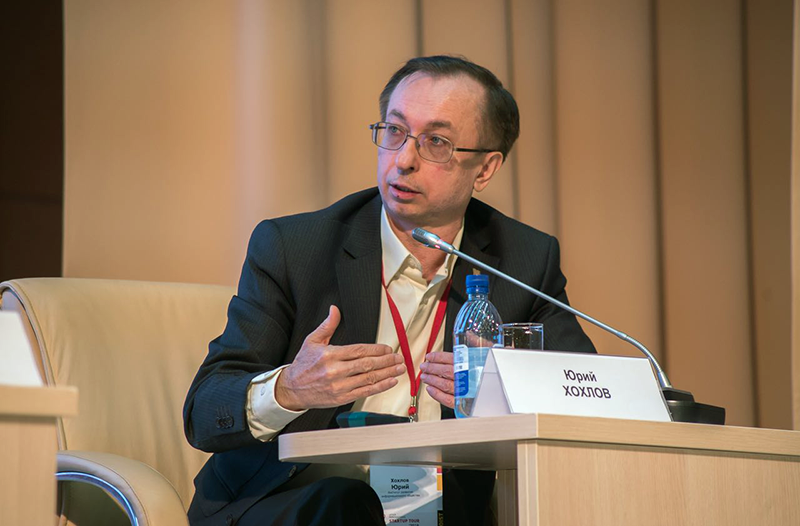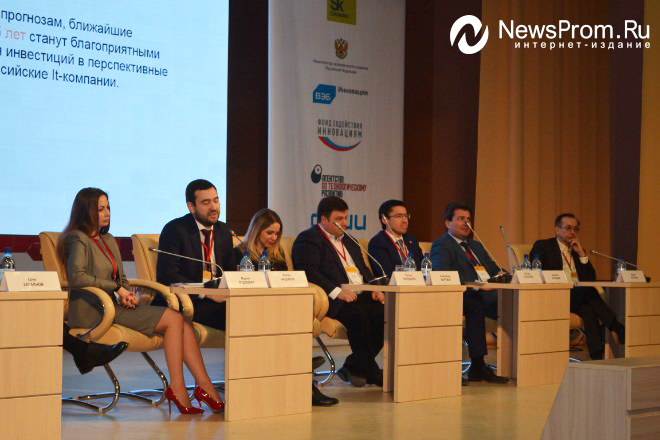|
 Deputy Governor of Tyumen
Region Vadim Shumkov welcomed the guests and participants. Deputy Governor of Tyumen
Region Vadim Shumkov welcomed the guests and participants.
“In order to ensure growth of
innovative sector of the economy, it is not necessary to overwhelm it with money. It is enough to provide
favorable environment for the innovative start-up and development of innovative
thinking. In the last year and a half, we have been actively trying to form
such a friendly environment in Tyumen. Today's event is one of the stages of
this work,”-he said.
On March 5, 2018 the discussion
on digital economy was held. Dr. Yuri Hohlov, Chairman of the Board of
Directors of the Institute of the Information Society spoke at the event. He
noted that much of the work done in this sphere will ne be needed in the
future.
He said, “Digital economy is
about something else. The industries
themselves will change so much that everything that have been done by now will
become only well-fertilized soil, on which we will need to grow something
new". Dr. Hohlov said that the program for the development of the digital
economy in Russia, which had recently been approved by the
Prime-Minister Dmitry Medvedev, is in the process of formation yet. It misses
the regional level at the moment. According to the IIS Chairman, there are
regions that themselves offer pilot projects. There are also those who wait and
those who will never take the initiative. He advised to Tyumen region to take
an active position.
He noticed that when he had
heard about support to IT sector, he had always wanted to ask, how the
industry’s contribution to the economy of the region could be assessed, whether
the money spent had been returned, or they had been transferred to the economy
of the other region, or possibly to a foreign economy. “Often there was no answer”,
he said.
Dr. Hohlov said that his organization had analyzed
the state of the digital economy in the country and in some regions. According
to the expert, some things from the experience of other regions can be recommended to the Tyumen Region. For
example, compensation for mortgage payments for IT professionals.
"To manage the process, you
must understand the current state and build a targeted plan for the future,”
resumed his speech Dr. Hohlov.
 Head of the Department of
Industry and Entrepreneurship Anton Mashukov asked the expert whether it seemed
to him that compensation for mortgages, rather than fees for rented
accommodation, limited the mobility of specialists. According to Dr. Hohlov, everything depends on the purpose. If the purpose
is short-term, then you can confine yourself to renting an apartment. "But tomorrow this person can prepare himself for journey and leave. And if he has a desire to form a cluster, it is
necessary to take strategic steps”, the expert said. There was a question in
Ulyanovsk region on why they needed their own data center. The answer was that
if the businesses used data storage had placed on the territory of the region, the money would not leave outside. “Speaking
about support measures, you should look, whether the invested funds stay in the
region", he said. Head of the Department of
Industry and Entrepreneurship Anton Mashukov asked the expert whether it seemed
to him that compensation for mortgages, rather than fees for rented
accommodation, limited the mobility of specialists. According to Dr. Hohlov, everything depends on the purpose. If the purpose
is short-term, then you can confine yourself to renting an apartment. "But tomorrow this person can prepare himself for journey and leave. And if he has a desire to form a cluster, it is
necessary to take strategic steps”, the expert said. There was a question in
Ulyanovsk region on why they needed their own data center. The answer was that
if the businesses used data storage had placed on the territory of the region, the money would not leave outside. “Speaking
about support measures, you should look, whether the invested funds stay in the
region", he said.
Another panelist, Alexander
Fertman, Director of the Department for Science and Education of
Skolkovo Foundation, argued that oil and gas industry forms the region's
economy. “Contribution of IT industry could be assessed through its successes,
rather than separately. If there were no necessary products in the region, the
companies would be guided by the best samples in Russia and in the world. The aim
was to attract those who help oil and gas companies, and not create an IT backwater”, he said. Dr. Hokhlov replied to the opponent
that the two "most global" companies in Ulyanovsk were not related with
the traditional car industry in the region, and support measures were designed
to keep specialists.
Source: http://fedpress.ru/news/72/policy/1979194 |

